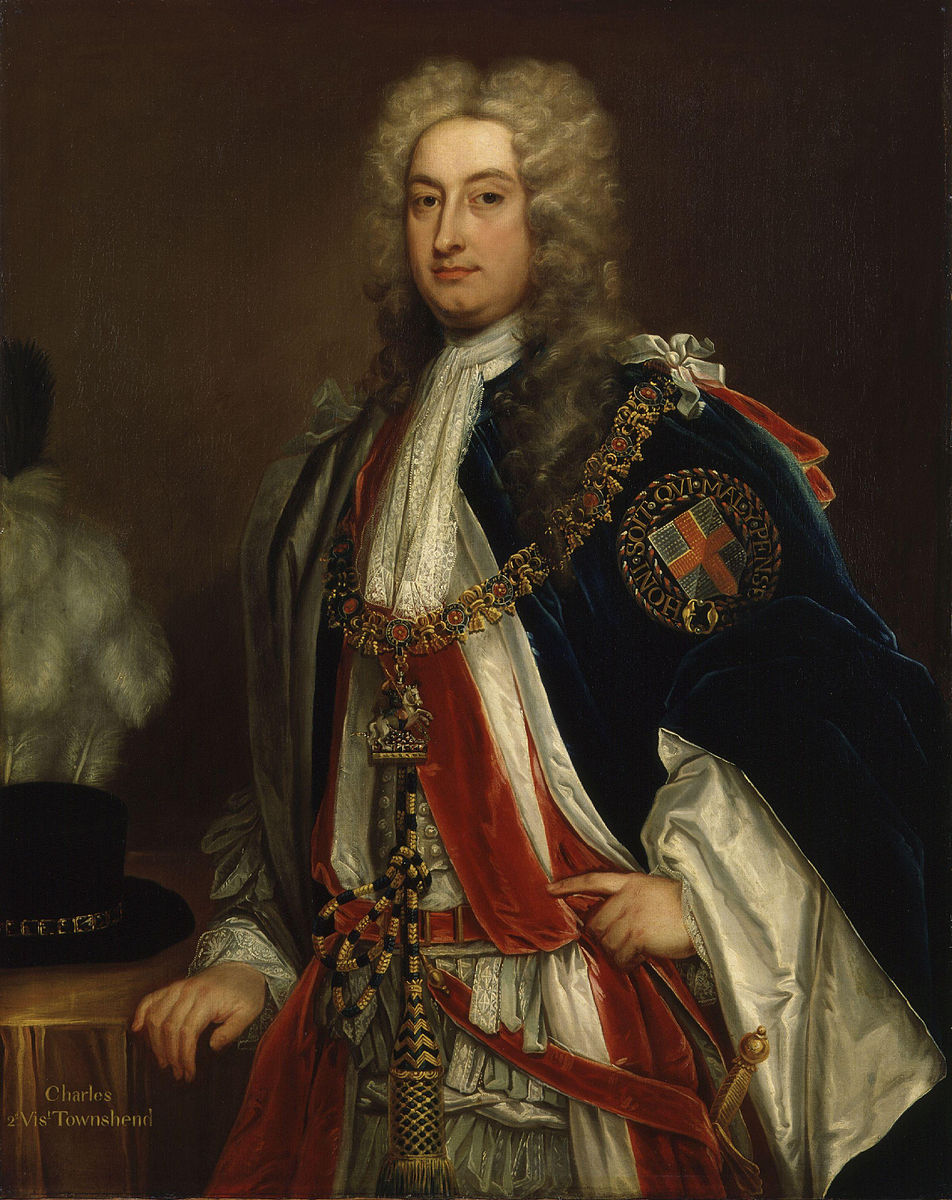CHARLES TOWNSHEND
Charles Townshend was an English statesman who served as the Secretary of State for a decade. He was born on April 18th, 1674 at Raynham Hall, Norfolk, England. He is best known for his role in the British Agricultural Revolution in the years before and during the Industrial Revolution. Along with others such as Jethro Tull, he helped revolutionize food production in the country which led to a boom in the population.
|
In the centuries before the start of the Agricultural Revolution, European farmers practised a form of farming in which they planted the same crop in the same field every year. This caused them to have to not plant anything in the field every few years in order to avoid destroying the quality of the soil. However, Charles Townshend, a British statesman, identified a way to improve farming practises and thus produce more food. In the 1730s, he discovered that by growing different types of crops in the fields year after year, British farmers did not have to leave a field for a growing season. For example, he argued that in one year the farmers should grow a cereal grain such as whet or barley and in a following year they should grow a vegetable crop such as turnips. By doing so, a farmer could grow food in a field every year without diminishing the ability of the soil. For his discovery, he became known as ‘Turnip Townshend’. In general, this allowed British farmers to grow more food, which in turn helped lead to an increase in the population of British citizens. The increased population was important to the beginning of the Industrial Revolution because it created a large workforce for the factories and mines that would be common during the time.
|
He died on June 21st, 1738 at the age of 64 in Raynham Hall, Norfolk; the same place that he was born. He is remembered today as a significant statesman for England, but more importantly for his role in the Agricultural Revolution and the innovation of crop rotation.
CITE THIS ARTICLEAUTHOR
|
|

